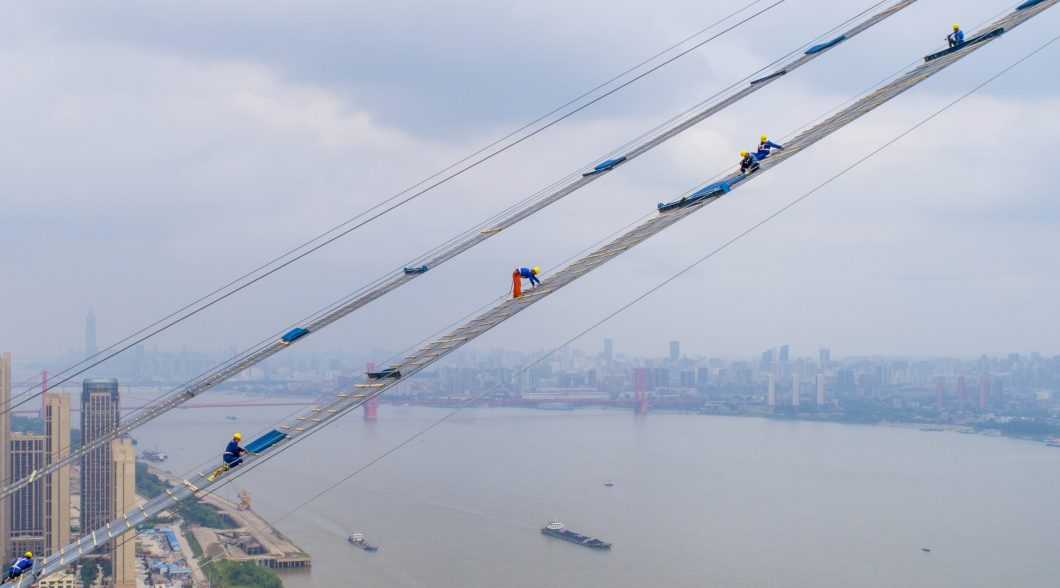by DAVID P. GOLDMAN

American policymakers believe that China is fragile, and that external pressures will crack the regime and mitigate China’s challenge to American strategic dominance. Cutting off access to technology, hectoring allies to exclude Chinese tech companies from communications infrastructure, encirclement through the “Quad” alliance of the US, Japan, India, and Australia, sanctions over the treatment of Hong Kong or Xinjiang, and so forth will weaken or even collapse the Communist regime, according to the Washington consensus. Dan Blumenthal, the director of Asian Studies at the American Enterprise Institute, presents the consensus view in a new book that illustrates by negative example how utterly wrongheaded the consensus has been.
Blumenthal misses the trees for the forest, to invert a phrase; he has a sharp understanding of China’s historical fault lines, but ignores the singular accomplishments that make China a formidable rival.
Fate played a cruel trick on Blumenthal. His book went to the printer in April, late enough for the author to add an Afterword about the COVID-19 pandemic in China, but too soon to get the story right. Had the book gone to press only a few weeks later, the author might have avoided egregious errors that undercut the credibility of his thesis, namely that China is at imminent risk of collapse due to its “internal contradictions.”
To the surprise of most Western analysts, China (along with the rest of East Asia) succeeded in suppressing a disease that continues to paralyze most of the West. To be sure, policies pursued in China that were seemingly successful in mitigating the spread of the virus were only possible because of the government’s lack of regard for personal autonomy. China’s economy will grow by 2% this year and 8% next year according to the International Monetary Fund; every other major economy in the world will shrink during 2020. In April it was still possible to believe (as Blumenthal wrote) that “China is still clearly underreporting its COVID-19 cases, possibly by a factor of 100.” COVID-19 was “a politically caused virus,” due to “an Orwellian police state [that] could not contain the epidemic and in fact made it worse,” through “political repression and social control that creates powerful incentives for local officials to lie, cover and punish those who can help most in a crisis.”
China’s comparative success in controlling the pandemic astonished the West. After some early bumbling by local party officials, China used its real-time locational data for smartphones to isolate individual cases, and fed this mass of information from smartphones into Artificial Intelligence servers which calculated the probability of new infection clusters. A Chinese government think tank published a detailed report on Beijing’s high-tech response on March 24, ignored at the time by a West that couldn’t believe it was happening. China reportedly has had virtually no new COVID-19 cases since April, apart from a few localized outbreaks quickly isolated and extinguished. Western commentators no longer gloat about China’s “Chernobyl moment.”
China has won a major battle in its civilizational contest with the West. We may regard with repugnance the surveillance methods that China deployed against the pandemic, but there is no question of their efficacy.
Law Liberty for more
